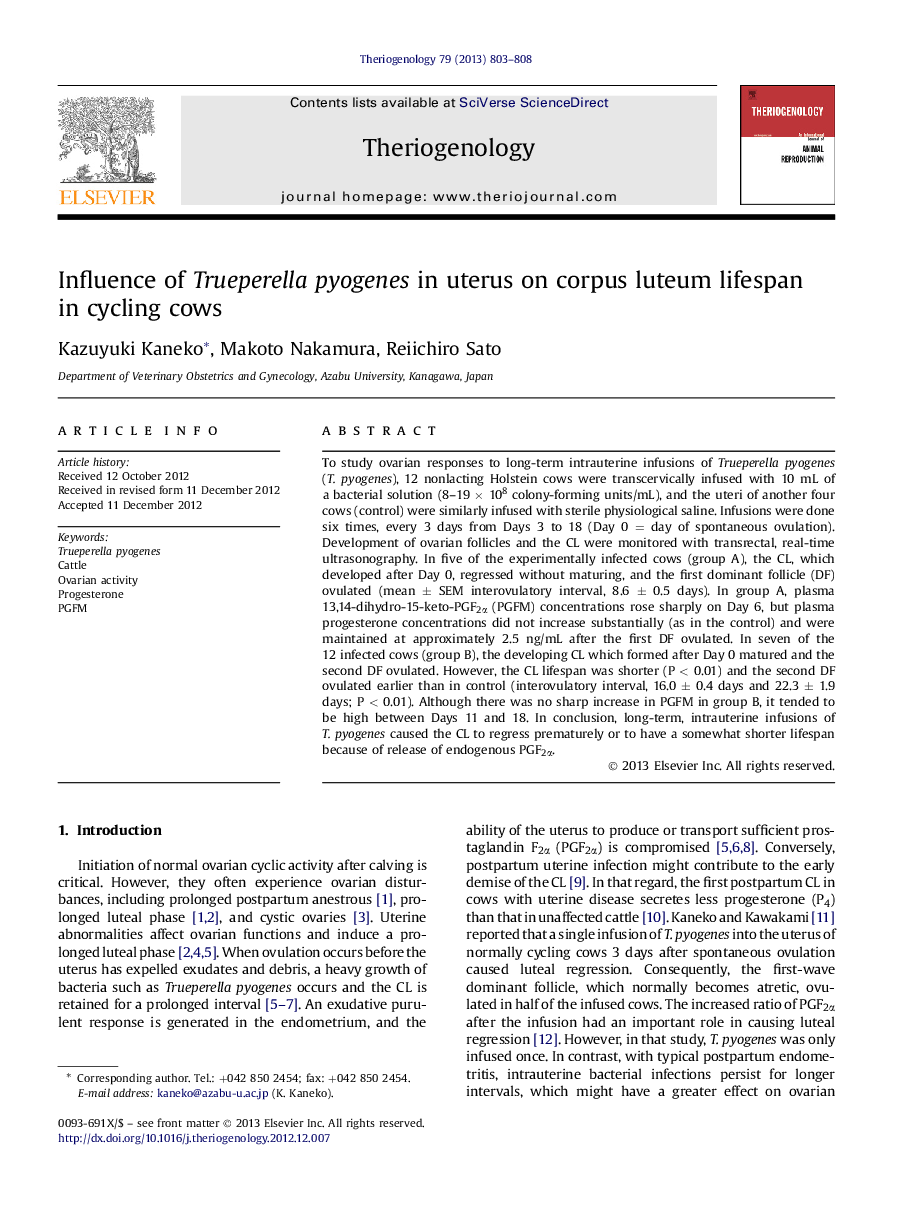| Article ID | Journal | Published Year | Pages | File Type |
|---|---|---|---|---|
| 10894473 | Theriogenology | 2013 | 6 Pages |
Abstract
To study ovarian responses to long-term intrauterine infusions of Trueperella pyogenes (T. pyogenes), 12 nonlacting Holstein cows were transcervically infused with 10 mL of a bacterial solution (8-19 à 108 colony-forming units/mL), and the uteri of another four cows (control) were similarly infused with sterile physiological saline. Infusions were done six times, every 3 days from Days 3 to 18 (Day 0 = day of spontaneous ovulation). Development of ovarian follicles and the CL were monitored with transrectal, real-time ultrasonography. In five of the experimentally infected cows (group A), the CL, which developed after Day 0, regressed without maturing, and the first dominant follicle (DF) ovulated (mean ± SEM interovulatory interval, 8.6 ± 0.5 days). In group A, plasma 13,14-dihydro-15-keto-PGF2α (PGFM) concentrations rose sharply on Day 6, but plasma progesterone concentrations did not increase substantially (as in the control) and were maintained at approximately 2.5 ng/mL after the first DF ovulated. In seven of the 12 infected cows (group B), the developing CL which formed after Day 0 matured and the second DF ovulated. However, the CL lifespan was shorter (P < 0.01) and the second DF ovulated earlier than in control (interovulatory interval, 16.0 ± 0.4 days and 22.3 ± 1.9 days; P < 0.01). Although there was no sharp increase in PGFM in group B, it tended to be high between Days 11 and 18. In conclusion, long-term, intrauterine infusions of T. pyogenes caused the CL to regress prematurely or to have a somewhat shorter lifespan because of release of endogenous PGF2α.
Related Topics
Life Sciences
Agricultural and Biological Sciences
Animal Science and Zoology
Authors
Kazuyuki Kaneko, Makoto Nakamura, Reiichiro Sato,
